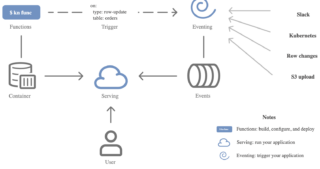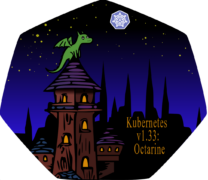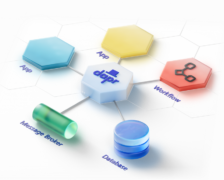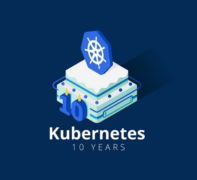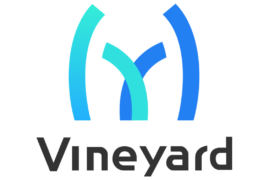Topic: cncf
Cloud Native Computing Foundation Announces Knative’s Graduation
The Cloud Native Computing Foundation (CNCF), which builds sustainable ecosystems for cloud native software, announced the graduation of Knative, a serverless, event-driven application layer on top of Kubernetes. Knative simplifies how developers build, deploy, and run modern workloads by abstracting the infrastructure concerns such as autoscaling, routing, event delivery, and building containers. It allows teams to focus on architecture … continue reading
Solo.io announces kagent enterprise
Context. It’s become a critical piece that organizations need to get the most of out agentic AI efforts. When looking at cloud native application delivery, Kubernetes is the gold standard, but according to AI platform provider Solo.io, it doesn’t have the contextual awareness necessary for all that’s needed to run AI applications securely and at … continue reading
CNCF announces graduation of in-toto security framework for software supply chain integrity
The Cloud Native Computing Foundation (CNCF) today announced the graduation of in-toto, a software supply chain security framework developed at the NYU Tandon School of Engineering. According to Linux Foundation Research’s 2024 report “Strengthening License Compliance and Software Security with SBOM Adoption,” software bills of materials (SBOMs) help organizations identify vulnerabilities early and improve traceability. The … continue reading
CNCF releases ‘magical’ Kubernetes version 1.33
An update to Kubernetes – version 1.33 – that features 64 enhancements is being released today by the Cloud Native Computing Foundation. According to the CNCF, the theme for Kubernetes v1.33 is “Octarine: The Color of Magic,” inspired by Terry Pratchett’s Discworld comic fantasy book series. This release highlights the open-source magic that Kubernetes enables … continue reading
CNCF announces graduation of CubeFS
The Cloud Native Computing Foundation (CNCF) has announced that CubeFS is now a graduated project. CubeFS is a distributed storage system supporting access protocols like POSIX, HDFS, and S3. According to the CNCF, key use cases supported by CubeFS include big data, AI/LLMs, container platforms, separation of storage and computing for databases and middleware, and … continue reading
CNCF announces new certifications, training initiative in Africa
The Cloud Native Computing Foundation (CNCF) today announced a number of new ways for cloud native developers to build their skill sets. It is announcing the first two in a series of certifications related to platform engineering, the Certified Cloud Native Platform Associate and the Certified Cloud Native Platform Engineer. The former is a multiple … continue reading
Cloud Native Computing Foundation announces KubeEdge graduation
The Cloud Native Computing Foundation today announced that KubeEdge, an open-source edge computing project built on Kubernetes, has achieved graduation status. KubeEdge, according to the CNCF, expands the cloud native ecosystem to scenarios and industries outside of data centers by bringing the container orchestration and scheduling capabilities of Kubernetes to the edge. Further, it delivers edge … continue reading
Dapr – ITOps Times Open Source Project of the Week
Dapr is a collection of APIs for building microservices that takes care of security, resiliency, and observability so that developers can focus on other aspects of building their applications. Dapr provides building blocks that are based on best practices for building microservices, and those building blocks can then be incorporated into the application using whatever … continue reading
Kubernetes v1.31 released; 11 new features now in GA
Some 11 features have graduated to stable in today’s release of Kubernetes v1.31, the first since the project celebrated its 10th anniversary this year. The release’s theme, here in the dog days of summer, is Elli, a playful pup meant to reflect the spirit and joy of the community of contributors. Among the highlights of … continue reading
Kubernetes at 10: Where it began, and where it’s going
Ten years ago, the Kubernetes project was first announced, and then soon after, the Cloud Native Computing Foundation (CNCF) was formed to become the home for it. Chris Aniszczyk was the founding executive director at the time, and has been around for the project’s entire history once it was donated by Google to the CNCF. … continue reading
Kubernetes – ITOps Times Open Source Project of the Week
When we first started the ITOps Open Source Project of the Week series, Kubernetes was already such a large and popular project that no one needed us to tell them about it, so it’s never actually been featured in this series. But given that the project is celebrating its 10 year anniversary this month, we … continue reading
ITOps Times Open-Source Project of the Week: Vineyard
Vineyard is an in-memory data manager designed specifically for data-heavy analytics. It uses shared memory to efficiently share data across different systems without needing to do serialization and deserialization. It employs a zero-copy method for sharing, which helps to avoid I/O overhead costs. According to the project maintainers, Vineyard is ideal for complex cloud-native environments, … continue reading

